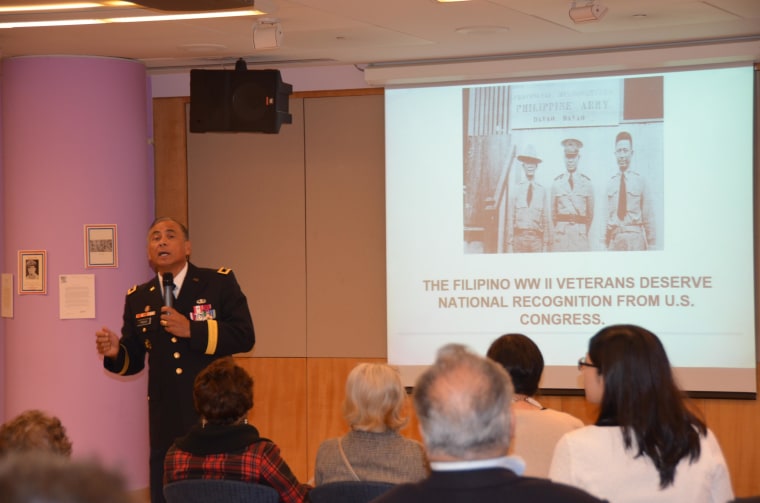At a recent San Francisco Public Library ceremony to honor Filipino American WWII veterans, Pelayo Llamas stood before a multi-generational group and shared on screen an image most had seen before.
The picture showed General Douglas MacArthur's infamous return to the Philippines with his landing in Leyte, depicting what many historians say was a pivotal moment in World War II. The Leyte Landing began the take back of the Philippines against the Japanese and lasted from October to December, 1944. It was a collaborative effort between the U.S. and Filipino military personnel.
Llamas’ point in sharing the photo was to call the audience’s attention to the man directly over MacArthur’s shoulder, standing third from left and wearing a combat helmet, his late uncle and Philippine General Carlos P. Romulo.
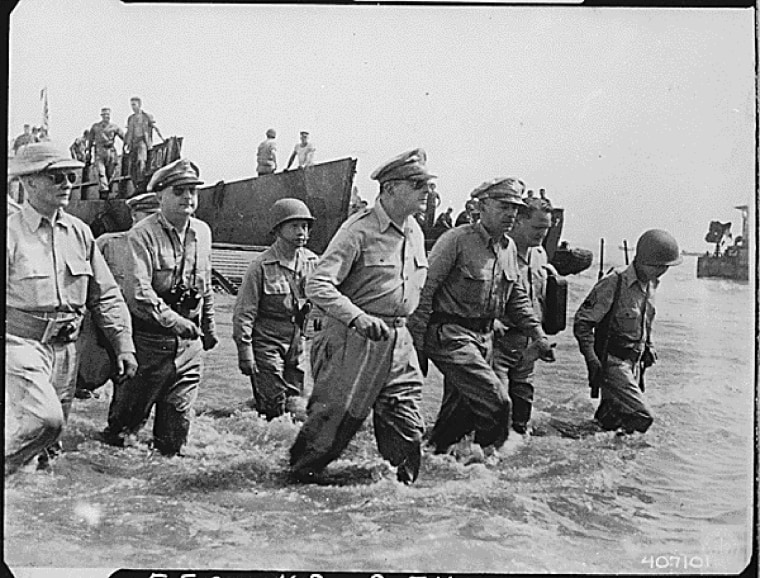
At the ceremony, Llamas recalled how MacArthur’s infamous phrase, “I shall return” -- one of history’s enduring battle cries -- was itself a collaboration between his uncle and MacArthur.
“In 1941, the War Department wanted the phrase to be ‘We shall return,’” said Llamas. But Romulo told them that it would have greater credibility if it came as a personal remark from MacArthur.
“He wanted to make sure that the U.S. kept focus on the Pacific so that the Philippines would not be forgotten."
He said that the Filipinos might not trust it coming from the U.S., which had retreated earlier from the Philippines. But the personal touch would make all the difference.
“If he says he is coming back, he will be believed,” said Llamas, quoting Romulo from William Manchester’s book “American Caeser; Douglas MacArthur, 1880-1964."
It still took a full three years before MacArthur returned to Leyte in 1944. But Romulo’s actions in the interim helped to make it happen. A Pulitzer Prize-winning journalist, as well as the Philippine Secretary of Foreign Affairs, Romulo gave numerous speeches in America leading up to the historic Leyte landing.
“He wanted to make sure that the U.S. kept focus on the Pacific," said Llamas, "so that the Philippines would not be forgotten."
Now Filipino-Americans want to reinvigorate Romulo’s efforts and ensure history doesn’t forget their community members who fought in World War II. The Filipino Veterans Recognition and Education Project is seeking a Congressional Gold Medal for Filipino veterans, as formal recognition for the critical roles they played.
“If we don’t do this now there won’t be any to recognize.”
“It’s time the Filipinos get recognized for their service in World War II and a lot has to do with what happened in Leyte,” said retired Army Major General Eldon Regua said to the audience at the San Francisco event.
Regua spent 36 years in active and reserve duty, including as Deputy Commanding General in South Korea from July 2011 to July 2013. The son of Filipino immigrants, his uncle also served as a Filipino Scout during WWII.
More than 260,000 Filipinos and Filipino Americans are believed to have fought in World War II. Those veterans include Filipinos in America who answered President Roosevelt’s call to duty, but they also include members of the Philippine Commonwealth Army, scouts, and guerrilla units who served at Roosevelt’s insistence and were placed under U.S. Army command in 1941.
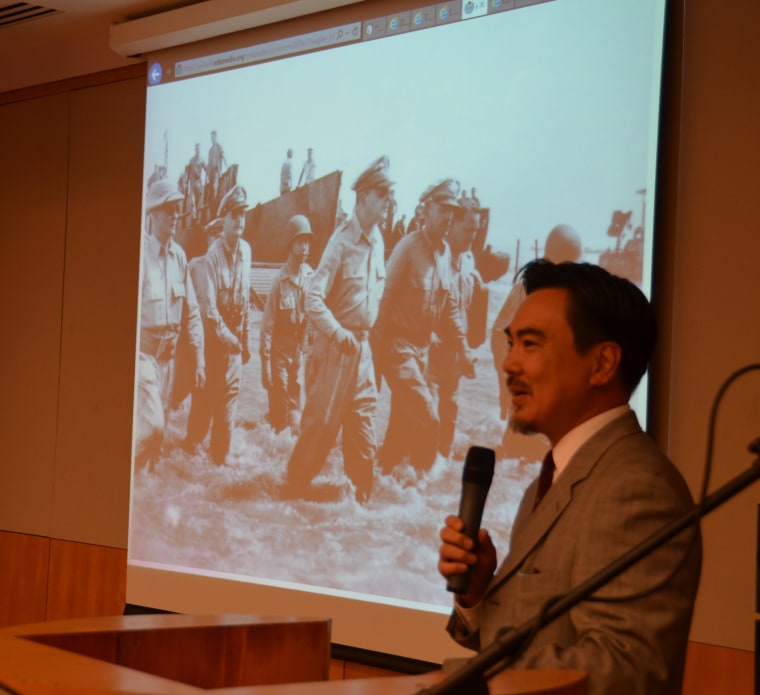
Ultimately, the Philippines was liberated and the enemy defeated. But not before thousands of soldiers were killed or captured at Bataan and Corregidor. Regua says the time has come to memorialize their commitment.
“There are only 16,000 remaining survivors,” said Regua. “If we don’t do this now there won’t be any to recognize.”
The Recognition and Education Project is the brain child of Regua’s former colleague and fellow Filipino-American, Major General Antonio Taguba, widely-known for leading the investigation into prisoner abuse at Abu Ghraib in Iraq.
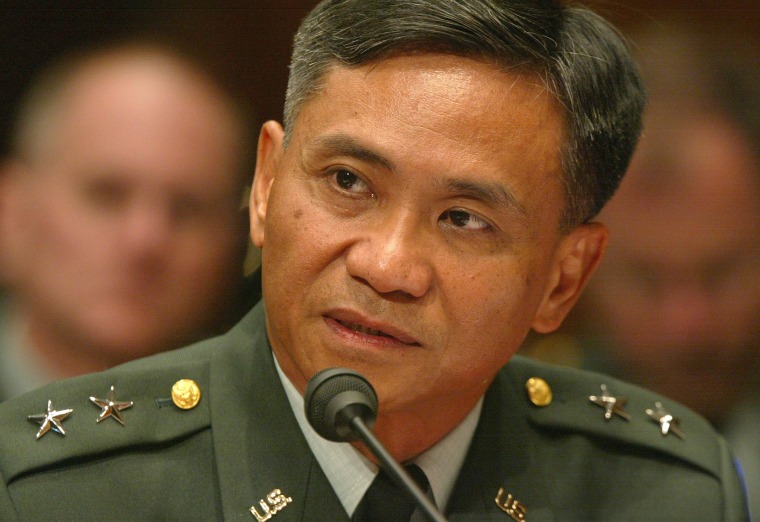
Taguba envisioned an all-volunteer national effort to help tell the stories of Filipinos and Americans fighting the Japanese during WWII – stories like those of the little-known Filipino guerrilla forces who held the Japanese at bay after MacArthur retreated and the Philippine government went into exile, paving the way for the Leyte Landing.
Lourdes Poblete, now 89, was then an 18-year-old fighter when she was captured by the Japanese, and held in a concentration camp for six months.
"No one is treated well when you are taken," Poblete said to this reporter. She described being tied up with her arms behind her back and then suspended in the air while being questioned. "Every time they don't believe you, they pull it a little higher,” she recalled. “And if your interrogator was really mean, you get a slap in the face."
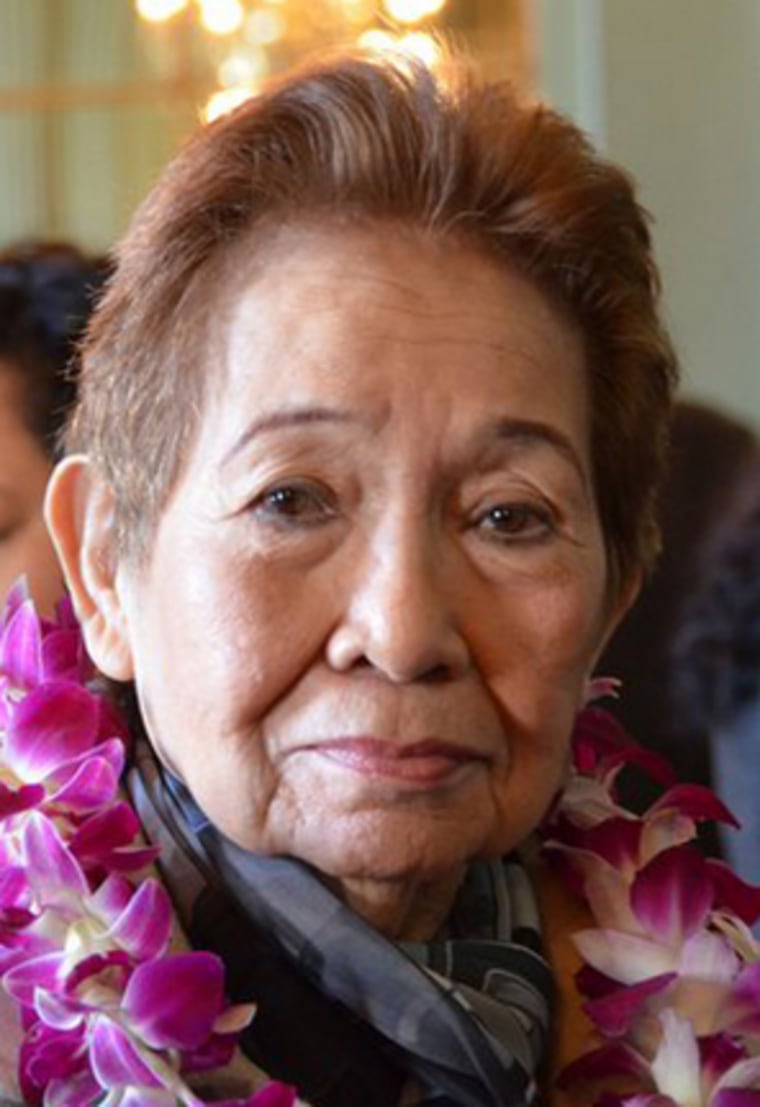
Rather than being honored for the roles they played, Philippine military personnel were rendered ineligible for benefits or public recognition when Truman ultimately signed the Rescission Acts of 1946. For decades, the community has lobbied for equity compensation for Filipino vets.
In 2009, Congress finally provided $15,000 to eligible veterans who are U.S. citizens and $9,000 to non-citizens. But community groups claim even though 18,800 have received some payment to date, the U.S. government has denied payment to 25,000 claimants.
"We need formal recognition. Our veterans deserve this.”
The recognition project, however, is less concerned about compensation, and more focused on increasing awareness among Americans of Filipino contributions in the Pacific. The group wants to establish a school and college curriculum, as well as push Congress to award a Congressional Gold Medal to the veterans. The committee hopes to one day raise funds to give replicas of the medal to the remaining vets and their survivors.
“We all know it’s time to do this,” said Regua to NBC News. ”There’s been no formal recognition. We need formal recognition. Our veterans deserve this.”
